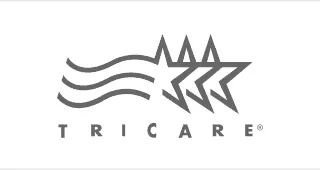If you have a family member, friend, or loved one struggling with an alcohol use disorder, it can be challenging to create a concrete plan to help them. One of the first steps to fully understand your loved one with an alcohol use disorder is educating yourself on the following:
Confronting an Alcoholic
Engaging in these steps will make for a smoother transition on not only how to live with an alcoholic, but more importantly, how to talk to someone about their drinking. Confronting an alcoholic isn’t an easy task, but providing the necessary support and getting them the proper help is worth the conversation. Whether the alcoholic is a family member, close friend, or partner, you can still play an essential role in their journey to sobriety.
This article will discuss various alcohol use disorders, how to talk to someone about their drinking, how to most effectively assist them, and also how to take care of your self-care and yourself during this entire process. It’s vital to remember that it can and most likely will take more than one conversation to persuade the alcoholic to receive treatment. However, by being diligent in showing your concern and support, you might be able to assist them in seeing that they have a problem and that it would be beneficial to receive addiction treatment.
Alcohol Use Disorders and Alcohol Abuse
Drinking becomes more of a concern when the individual’s life is affected to the extent that they can no longer control their overall alcohol use. So, because of that, they continue to drink regardless of the extent of the negative impact it carries over their life. Once a person’s drinking progresses to this extent, the person likely has an alcohol use disorder.
An alcohol use disorder (AUD) is considered a chronic yet treatable condition that can develop in correlation with particular psychological adaptations and cognitive changes that make it increasingly difficult for an individual to stop drinking even if they want to. According to the American Psychiatric Association (APA), it’s suspected that someone has an AUD if they meet at least two of the following criteria that are outlined here:
When an individual consumes more than one drink a day which is equivalent to a 12-ounce beer for women and two drinks per day for men, it might be considered unhealthy drinking. It’s important to remember that only a physician can diagnose an individual with an AUD. However, being aware of the AUD signs can help an individual prepare for a conversation on how to talk to someone about their drinking.
Recognizing Alcoholism
If you begin to notice certain physical changes in a loved one that could indicate they might have a drinking problem, it might appear as the following signs:
Once the physical signs of an alcoholic appear, behavioral signs might also appear, such as:
The individual you suspect might have a drinking issue might appear to be intoxicated, less interested in work activities, schoolwork, relationships, or unable to refuse an alcohol offer. Sometimes individuals struggling with alcohol misuse might begin telling lies or even being secretive about their alcohol use, whereabouts, or more. However, these factors alone aren’t indicative of an alcoholic problem when other suggestive signs accompany it.
How to Create a Plan and Know What to Say
After you have established making an effort to understand what your loved one might be experiencing regarding their alcohol use disorder, it’s paramount to create a plan and write down helpful ideas on confronting an alcoholic. Overall, this part of the process is the most emotionally taxing. For this reason, it’s essential to prepare diligently.
Writing down the most important points you want to discuss with the individual can better help you formulate and remember your ideas for the conversation. The most central points that you want to focus on when writing out the conversation plan include the following:
The First Step Is: Seek Support
Seeking support for yourself through therapy or resources can assist you in not feeling alone as you go through this obstacle. The resources might provide additional strategies suited to addressing the individual’s alcohol abuse issue and can also assist you in understanding what the ideal approach is. There are various ways to go about this.
One idea is to discuss matters with a mental health or substance abuse specialist or therapist to advise you on how to talk to someone about their drinking. During this step, you might also consider reading books, websites, articles, or accessing other free resources on AUDs.
The Second Step Is: Engage in Self-Care
It’s important not to forget about your self-care when being concerned about someone you love. Sometimes, however, it’s one of the first things pushed to the side. The unfortunate side is that when you feel burnt out, you will be less capable of providing care and support.
So, remember to seek your social support during this taxing time. You could start therapy with a mental health professional or counseling to discuss and process your feelings. Another alternative is considering joining a support group for loved ones of individuals with alcohol use disorder, such as SMART Recovery for Friends and Family or Anon.
Ultimately, these resources can also help an individual learn and remember the overall importance of setting healthy boundaries with the individual with an AUD. Don’t forget that your needs are just as important as anyone else, and taking care of yourself does not make you selfish. Always remember, “Self-care isn’t selfish; it’s necessary.”
If you love someone with an AUD, you might unknowingly engage in rescuing, enabling, and caretaking behaviors. You might experience what is known as codependency, which is an unhealthy emotional reliance on your loved one. Talking to other individuals in your position, for example, in a support group, can assist you in developing healthier strategies to protect your boundaries. Doing this will make you less likely to lose touch with your personal needs.
The Third Step Is: Make Sure to Have Treatment Options Ready
As a big part of the overall planning process, it’ll be essential to assemble a ready, quick, and accessible list of treatment options. If you can put yourself in the predicament of saying, “I have done some research, and I have found these treatment options,” then present them with a list of the readily accessible resources, your loved one might be more willing to consider addiction treatment. Research feasible treatment options online first.
This process will solidify the plan before speaking to your loved one. You want to make calls to treatment centers that appear to be fitting for your loved one. Afterward, you want to ask them if they have any questions about your findings.
Always remember that timing is super important when confronting an alcoholic. Normally, your loved one might waver between needing help for their AUD and feeling like they can handle their alcohol use issues independently. According to the National Institute on Drug Abuse (NIDA), individuals who need help for an AUD tend to slip through the cracks if treatment isn’t readily or immediately accessible.
The Last Step Is: Participate in Your Loved One’s Treatment
Once your loved one decides to pursue and enter a treatment facility, you must be involved. Overall, the support of loved ones plays an important role in recovery. You might be asked to participate in family or couples counseling, or you might even be asked to start changing your behaviors, such as not keeping alcohol in the house or not drinking around your loved one.
Additionally, with the consent of your loved one, you might be asked to assist the treatment center with the overall aspects of the treatment plan, participate together in mutual support group meetings, and assist with setting goals. To avoid alcoholic relapse, family support will need to be incorporated.
Alcoholic Treatment Awaits at Achieve Wellness and Recovery
Overall, you must seek help for yourself first and take the needed time to learn and understand alcoholism. Upon confronting an alcoholic, don’t try to control the person or “babysit their sobriety.” If you need a treatment center that is willing to stand in the gap for you, look no further.
We start our alcoholic treatment program with a drug detox to help the alcoholic overcome psychological and physical dependence on the drug. We’ll strive to ensure that the withdrawal process is as bearable as possible before moving on to treatment which includes partial care, outpatient treatment programs, and residential treatment to name a few. Let’s get started.
We work with most insurance companies. Please note we are not affiliated with or endorsed by insurance companies.
No Medicaid Accepted.

Medically Reviewed By
Nicole Rettino-Lambert LCSW, LCADC, CCS, CCTP, CSTIP
Nicole Rettino-Lambert is a dually licensed clinician with over 20 years of experience working with children, adolescents, and adults in both addiction treatment and mental health treatment. Along with extensive experience in clinical work, she has held leadership roles in both inpatient and outpatient addiction treatments centers in New Jersey. Throughout her various leadership positions, Rettino-Lambert has developed clinical programming, assisted staff in their growth and development in the clinical field, and had the privilege of helping numerous individuals on their path to recovery.
As a clinician, Rettino-Lambert specializes in addiction trauma, mental health, self-harm behaviors, anxiety, intimacy issues, sex addiction, and personality disorders. She holds certifications as a clinical trauma professional and sex informed professional. Her passion and purpose as a clinician are to help individuals find their voice, purpose, and motivation through their recovery. She takes pride in being part of the process that helps those who are fighting for their lives to achieve both sobriety and wellness.In her role as a Clinical Director at Achieve Wellness and Recovery, Rettino-Lambert works tirelessly to ensure that her staff feels supported in their roles, continues their clinical growth and development, and is empowered to become the best versions of themselves. She firmly believes that all the staff are an essential part of clients’ recovery journey and that they deserve continuous compassion, empathy, acknowledgment, and support from leadership.





















